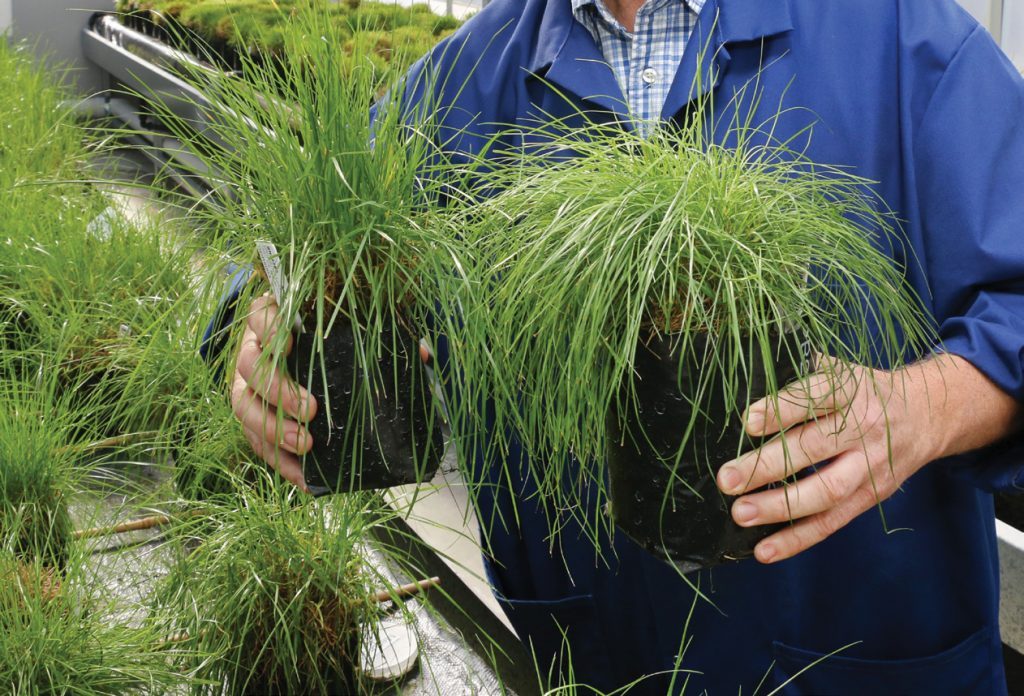Is it time to shift the debate on genetic modification technologies away from toads in tomatoes? Glenys Christian reports.
Lack of movement on reopening the debate on genetic modification (GM) is causing increasing frustration. While the Government indicated in April it would look at the subject again, indications are there still isn’t the political will for this to happen.
Federated Farmers’ president Andrew Hoggard said the lobby group had been constantly raising the issue.
“More and more people are agreeing we need to have a better look at GM. But we’ve got to have the leadership.”
There needed to be a move away from previous discussions, focusing on where the technology had now moved to.
“We’re not talking about putting frog genes into tomatoes.”
Instead any future debate needed to be framed around how nature could be improved, such as using the technology to reduce the spread of wilding pines, slowing possums’ breeding and reducing methane emissions.

It also needed to be recognised that New Zealand agriculture could be missing out with other countries getting to solutions earlier.
The example he used was polled cattle where, through activation of a gene at the embryo stage, the animal born would have no horns. This could replace crossing of animals with this trait which might take many years and could suppress productivity improvements.
“The United States has already bred some animals which are gene-edited polls,” he says.
It wouldn’t be long before their semen was available in breeding catalogues, meaning the end of a painful process which calves would no longer need to go through. But with NZ’s present policy importing semen from such animals would create a problem.
He would like to see a position paper put forward by, for example, the Prime Minister’s chief science officer, so a public discussion could be held.
Both National and ACT support such a re-evaluation. Opposition science and research spokesperson, Judith Collins, said it’s time for a sensible and intelligent discussion as to how NZ can use precision breeding to comply with its climate change obligations and also to lessen the use of chemicals.
Right words but will they?
Hoggard said National had nine years in government to do something about the situation, but didn’t.
“They’re saying the right words, but it’s what they do in government which counts.”
ACT’s Primary Industries spokesperson, Mark Cameron, said NZ should be looking at technological advancements before taxing and destocking, and his party would make changes to the Hazardous Substances and New Organisms Act (HZNO) to allow this to happen. He referred to a recent Research First survey which showed only 15-19% of respondents were opposed to gene-editing for improved results onfarm. From 48-52% were supportive and 31-33% neutral.
The terms of reference for the Government’s review of genetic engineering were so tight the benefits to the agriculture industry and climate weren’t considered. That would mean AgResearch’s high metabolisable energy (HME) ryegrass which had the potential to reduce livestock methane emissions by about 23% and reduce nitrogen excretion wouldn’t be considered.
A number of speakers at the recent Primary Industries Summit agreed there needed to be further discussion about GM introduction. Lincoln University’s Agribusiness and Economics Research Unit Professor Caroline Saunders said the conversation needed to be changed as consumers were confused. A survey of United Kingdom consumers’ attitude to lamb carried out in both 2019 and again in 2020 showed the percentage opposed to GM feed went from 9.5% to 20.4%.
“It would be good to do a more in-depth, nuanced study.”
DairyNZ senior research scientist Jane Kay said while GM would give NZ more tools and technology, it had to be careful it didn’t impact the country’s reputation. And there was concern from the horticulture sector as to the effect such a change could have on this country’s well-established brands.
Zespri chief executive, Dan Mathieson, said the debate would take some unwinding as consumers were confused.
Chief executive of Horticulture New Zealand, Nadine Tunley, said while the conversation around the introduction of GM needed to be had, there needed to be care taken around the story.
The two men who co-chaired the Royal Society’s expert panel on the subject two years ago, which concluded there was an urgent need for such a discussion both lament the time that had already been lost.
Massey University Professor of Molecular Genetics Barry Scott said NZ’s regulatory framework is not fit for purpose with little changing in HZNO legislation since the 1990s.
“Technologies available now challenge past views.
“We need new technologies and we shouldn’t be afraid to embrace them.”
It was tragic that the country was being held back which was resulting in young people going offshore where regulations weren’t so tight and start-up companies using such technology could flourish.
Medicines weren’t regulated based on how they were created but on their safety and efficacy.
“That’s where the real problem lies.”
There could be instances in agriculture where a GM solution was required in the future. With the kiwifruit industry’s PSA incursion it was just fortunate that good germplasm was available locally to breed new, resistant varieties.
“It’s really foolish not to embrace new technology and apply it to agriculture, otherwise we will be severely disadvantaged.”
Retired entomologist and co-chair Dr David Penman, said technology has a way of scaring people, with one hugely controversial development in-vitro fertilisation (IVF) now easily accepted.
“But we are shutting ourselves off from the opportunity to move along in a safe way.”
HZNO wasn’t built for this type of technological advance but progress had to be driven by political will.
“It’s crazy to have to do low-methane ryegrass work in the US.”
A further debate which wasn’t confrontational was needed on the subject.
“I’m really worried that we’re missing out on lots of opportunities in the agricultural area.”
Farmers needed more tools as they were fast losing their ability to use some pesticides, but introduction of GM technology could enhance the country’s clean, green image.
“We’ve got to find a way to shift the debate away from toads in plants.”




